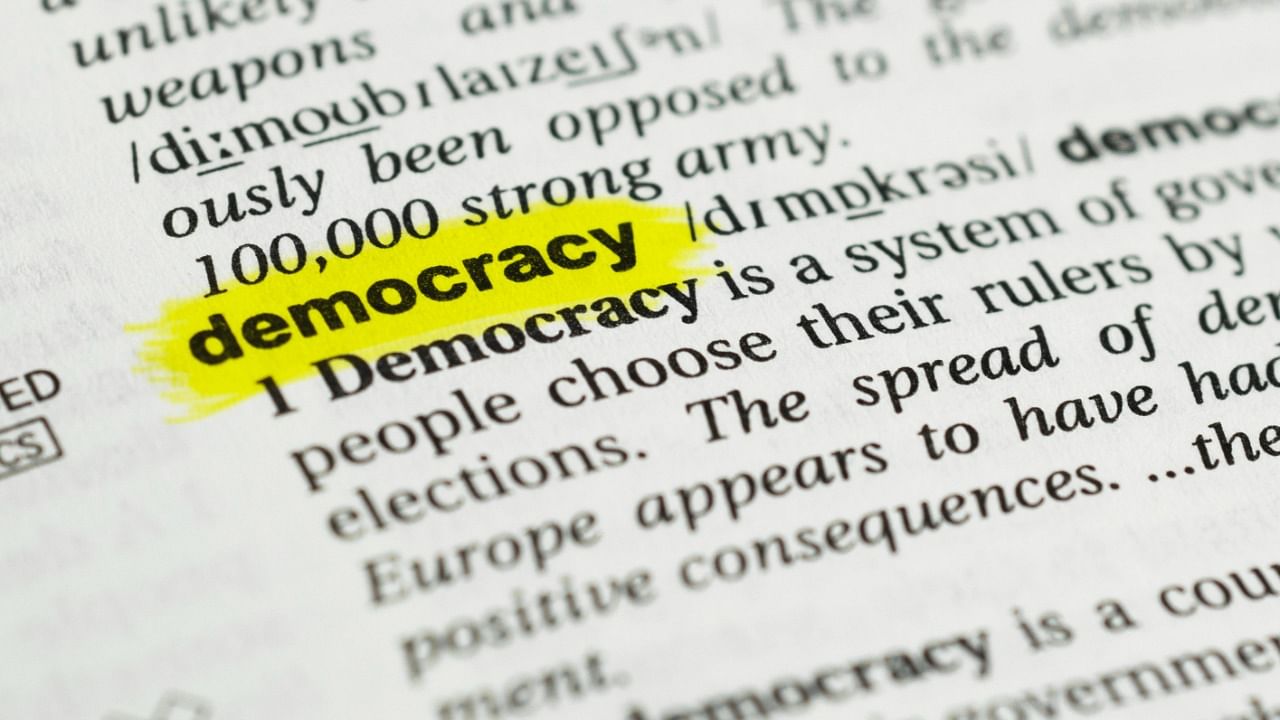
A few years ago, we organised a ‘national’ dissemination workshop in Bengaluru to share the findings of one of our multistate research studies with participation from all Indian states that had been covered by the study. The funding agency that had supported the study and also the workshop asked us how the workshop held in Bengaluru became national since it was not held in Delhi. My argument that a workshop held in Delhi and attended by only Delhi residents does not become national did not cut much ice with them.
We, as a Bengaluru-based research organisation, often have to go the extra mile to prove that we are a multilingual, multidisciplinary body implementing various researches in different parts of the country, and therefore, also ‘national’ indicating a pan-Indian presence. The controversy arising out of Kannada actor Sudeep’s and Hindi actor Ajay Devgn’s interactions on whether Hindi is the national language or not is not a trivial issue, and it reminded me of our struggles to continuously ‘prove’ that we, too, are national.
The language has its own political economy and the urge to declare one among them the ‘national’ is reflective of the same. Ajay Devgn’s argument that if Hindi is not national why are other language films being dubbed into one, is nothing but a majoritarianism argument. It is true that Hindi has the highest number of speakers among all Indian languages, but does that make it national? We live in the age of majoritarianism where hierarchies are easily created on the basis of number: Hindu religion, by virtue of having the highest proportion of followers among Indian population, is already being viewed as the ‘national’ religion and being used as a licence to bully and subjugate the followers of all other religions. Reliance on the power of number, however, belies all tenets of a civilised, diverse, secular and democratic nation-state that we are supposed to be, as defined by our Constitution.
Electoral democracy values number, and therefore, is often equated with power. But the very notion of democracy, of which electoral democracy is only one part, also evolved out of respect for each individual, and our Constitution overtly recognises the principle of equality in every possible manner. Also important is to recognise that what is majority in one context becomes a minority in another and can face subjugation in a similar manner.
An inclusive society striving to become an equal society needs to be wary of supporting the hierarchy of languages or religions for a variety of reasons. While south Indian films benefit in terms of reach and market by dubbing their films in Hindi, a large number of Hindi-speaking students and workers of all strata come to the south for studies and work. They are indeed a numerical minority in that context and face the consequence of ‘majoritarianistic’ decisions that make a society non-inclusive. For instance, when the government of Karnataka decided to remove all Devanagari signage from the Metro stations in Bengaluru, it shrunk the city’s inclusiveness by some measure as Devanagari is a script not only for Hindi but also for a few other Indian languages while Hindi is also a second language for a large number of the city’s immigrants. Exclusion begets exclusion and subjugation begets subjugation. As long as Ajay Devgns will keep calling Hindi ‘national’, indicating towards a hierarchy, non-Hindi states will keep excluding Hindi from their scheme of things.
In my few years in London, I used to admire the inclusiveness of language that was evident in at least two major services to the residents: road signage and public health information available at GP clinics.
All the communication materials in the GPs telling the visitors about health services used to be available in a number of non-English languages, including Hindi, Bengali, Tamil, Punjabi, Gujarati and Urdu, to name a few. Similarly, the road and tube stations had signage in different languages in addition to English, taking the commonly spoken language of the area into consideration: if it was Bangla in the Brick lane, it was Gurumukhi in South Hall.
As Indians, most of us are naturally bilingual, often speaking three to four languages with ease. Why is there any need to create a hierarchy where there is none? As we all know, language is not only a medium of communication; it is part of one’s identity, culture and history. Respect for a language is also respect for that history, culture and identity. Even a casual perusal of our own as well as our neighbouring countries’ not-so-distant history tells us how detrimental it can be to ignore the presence of multilingual, multicultural, multireligious existence on an equal footing. Sooner we realise that, the better it is for all.
(The writer heads a Bengaluru-based think tank)